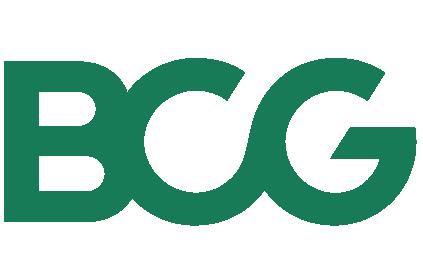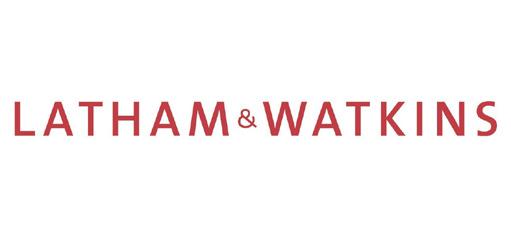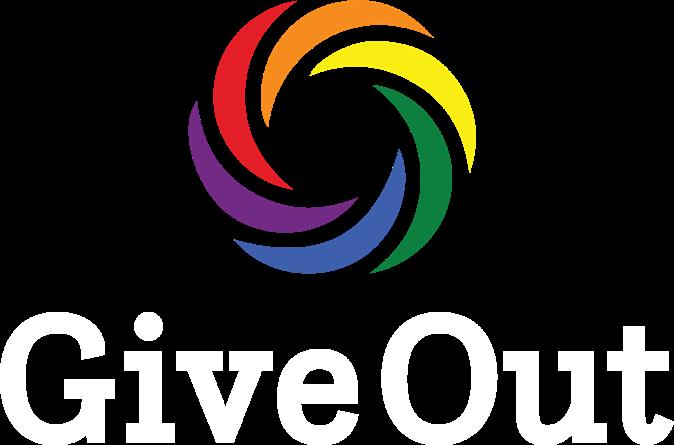
9 minute read
Endnotes
from Pride With Purpose: How Businesses Can Support the Global Movement for LGBT Human Rights
by GiveOut
1. Office of the United Nations High Commissioner for Human Rights (OHCHR) (2017), Tackling
Discrimination Against Lesbian, Gay, Bi, Trans, &
Advertisement
Intersex People: STANDARDS OF CONDUCT FOR
BUSINESS, p.1. 2. Global Philanthropy Project (2020), 2017/18 Global
Resources Report: Government and Philanthropic
Support for Lesbian, Gay, Bisexual, Transgender, and
Intersex Communities, p.20. 3. OHCHR, op. cit., p.12. 4. The Independent Expert on protection against violence and discrimination based on sexual orientation and gender identity (IE SOGI) (2020),
Violence and discrimination based on sexual orientation and gender identity during the coronavirus disease (COVID-19) pandemic. 5. GiveOut (2020), COVID-19: How the LGBTQI movement is responding. 6. Global Philanthropy Project, op. cit., pp. 50-86. 7. Global Philanthropy Project, op. cit. 8. Human Dignity Trust, 'LGBT & The Law' <https:// www.humandignitytrust.org/lgbt-the-law/> [accessed 22 March 2021]. 9. Ibid. 10. Global Philanthropy Project, op. cit. 11. Global Philanthropy Project, op. cit., pp. 50-86. 12. Global Philanthropy Project, op. cit., p.45 13. OHCHR (2020), COVID-19 and the human rights of
LGBTQI people. 14. IE SOGI, op. cit. p.6. 15. Human Rights Watch, ‘Hungary Seeks to Ban
Legal Gender Recognition for Transgender People’ <https://www.hrw.org/news/2020/04/03/ hungary-seeks-ban-legal-gender-recognitiontransgender-people> [accessed 22 March 2021]. 16. Open For Business (2019), Channels of Influence:
How Companies Can Promote LGBT+ Inclusive
Societies, p.1. 17. Boston Consulting Group (BCG) (2019), Why Your
Diversity Strategy Needs To Be More Diverse. 18. Ibid. 19. BCG (2018), ‘How diverse leadership teams boost innovation’ <https://www.bcg.com/ publications/2018/how-diverse-leadershipteams-boost-innovation.aspx> [accessed 22
March 2021]. 20. Open For Business (2015), “The Business &
Economic Case for LGBT Inclusion” 21. Open For Business (2019), The Economic Case for
LGBTQI Inclusion in Kenya. 22. World Bank (2017), Doing Business: Measuring
Business Regulations. 23. Open For Business (2019), The Economic Case for
LGBTQI Inclusion in Kenya. 24. Open For Business (2015), The Business & Economic
Case for LGBT Inclusion. 25. World Bank (2014), The Economic Cost of Stigma and the Exclusion of LGBT People: A Case Study of
India. 26. Meyer, I. H. (2003), ‘Prejudice, social stress, and mental health in Lesbian, Gay, and Bisexual
Populations: Conceptual issues and research evidence,’ Psychology Bulletin, 129, 5: 674–697. 27. The Global Forum on MSM & HIV (2015), Service
Under Siege: The Impact of Anti-LGBT Violence on
HIV Programs. 28. Noland, M. (2004), Popular attitudes, globalization and risk. 29. Fedderke, J. W. (2005), Technology, Human Capital and Growth. 30. Virgin Holidays (2017), 'Responsible Tourism:
Everyone can take on the world' <https://www. virginholidays.co.uk/responsible-tourism/peopleand-partners/losethelabels> [accessed 22 March 2021]. 31. Open For Business (2015), The Business & Economic
Case for LGBT Inclusion. 32. States are party to the core international human rights treaties, and bear international legal responsibility for breaches of their international obligations under these treaties. 33. In August 2019, the Business Roundtable, a group of 181 CEOs of the U.S.’s largest corporations, issued an update to its corporate governance principles on “the purpose of a corporation”. The update removed the endorsement of shareholder primacy, and replaced it with a broader range of stakeholders for whom a corporation operates, including its customers, employees, suppliers, and “the communities in which we work”. See further, <https://www.businessroundtable.org/ business-roundtable-redefines-the-purpose-ofa-corporation-to-promote-an-economy-thatserves-all-americans> [accessed 22 March 2021]. 34. The responsibility of businesses to respect human rights has “hardened” over time. • Initially, this responsibility was voluntarily assumed by businesses through participation in non-binding initiatives like the UN Global Compact, or recognised by states through nonbinding instruments like the OECD Guidelines for Multinational Enterprises. • (In 2011, the OECD adopted major changes to its Guidelines for Multinational Enterprises, including to introduce a new human rights chapter in alignment with the UN Guiding Principles. See, OECD, OECD Guidelines for Multinational Enterprises (2011 Edition), pp.31-34 < http://www.oecd.org/daf/inv/ mne/48004323.pdf >). • These developments have laid the groundwork for a binding treaty to regulate, in international
human rights law, the activities of transnational corporations. • This treaty, currently under negotiation, obliges states to regulate the activities of transnational corporations within their territories, including requiring businesses to undertake human rights due diligence. • See, UN Human Rights Council Openended intergovernmental working group on transnational corporations and other business enterprises with respect to human rights, Legally Binding Instrument to Regulate, in International Human Rights Law, the Activities of Transnational Corporations and other Business Enterprises (Zero Draft) < https:// www.ohchr.org/Documents/HRBodies/ HRCouncil/WGTransCorp/Session3/DraftLBI. pdf >. See also, the revised draft, issued 16 July 2019, < https://www.ohchr.org/Documents/ HRBodies/HRCouncil/WGTransCorp/ OEIGWG_RevisedDraft_LBI.pdf >. • In advance of the treaty’s conclusion, a number of states have already introduced, or are in the process of introducing, mandatory business and human rights legislation. • For example, in 2017, France implemented a new corporate vigilance law requiring the largest French companies to develop and publish human rights due diligence plans, covering their subsidiaries as well as established subcontractors and suppliers. (Commercial Code (France), Art. L225-102-4 – 102-5, inserted by LOI n° 2017-399 du 27 mars 2017 relative au devoir de vigilance des sociétés mères et des entreprises donneuses d'ordre, < https:// www.legifrance.gouv.fr/eli/loi/2017/3/27/2017399/jo/texte >). • The Swiss Parliament is currently considering legislation to impose liability on Swiss-based companies for human rights violations occurring worldwide. (Swiss Confederation, Initiative populaire fédérale 'Entreprises responsables – pour protéger l’être humain et l’environnement, < https://www.bk.admin.ch/ch/f/pore/vi/ vis462t.html >). • A number of states have also incorporated human rights obligations on foreign investors in their international investment treaties. • See, for example, the Netherlands Model Bilateral Investment Treaty (published 19 October 2018) < https://www.rijksoverheid. nl/binaries/rijksoverheid/documenten/ publicaties/2018/10/26/modeltekst-voorbilaterale-investeringsakkoorden/modeltekstvoor-bilaterale-investeringsakkoorden.pdf >. 35. The UN Global Compact is a set of ten general principles by which businesses should abide, including in relation to human rights, labour rights, the environment and anti-corruption.
By participating in the Compact, businesses commit to support and respect the protection of internationally proclaimed human rights, ensure they are not complicit in human rights abuses, and report on their progress in implementing the principles. Approximately 10,000 businesses globally have since signed onto the Compact. • See, United Nations Global Compact, https:// www.unglobalcompact.org/; United Nations General Assembly, Towards global partnerships, 21 December 2000, UN/A/RES/55/215; United Nations General Assembly, We the peoples: the role of the United Nations in the twenty-first century, 27 March 2000, UN/A/54/2000, [177]; United Nations Global Compact, UN Global Compact Progress Report (2018), p.12 < https:// www.unglobalcompact.org/docs/publications/ UN-Global-Compact-Progress-Report-2018. pdf >. 36. OHCHR, Guiding Principles on Business and Human
Rights, < https://www.ohchr.org/documents/ publications/GuidingprinciplesBusinesshr_eN.pdf >. See also, the interpretive guide for the Guiding
Principles - < https://www.ohchr.org/Documents/
Publications/HR.PUB.12.2_En.pdf >. 37. Core international human rights treaties, including the International Covenant on Civil and Political
Rights (“ICCPR”), and the International Covenant on Economic, Social and Cultural Rights, provide that human rights are to be guaranteed without discrimination, including as to race, sex, religion, or other status. However, sexual orientation and gender identity are not explicitly protected. In a landmark decision in 1994 (Toonen v Australia), the Human Rights Committee established by the
ICCPR recognised that sexual orientation was a protected characteristic. Committees established under other treaties have since followed suit. 38. Wider international recognition of LGBTQI rights as human rights has been slowed by continued opposition from a substantial bloc of states (the majority of whom still criminalise samesex activity). In 2011, the Human Rights Council (the UN political body) issued its first resolution on human rights, sexual orientation and gender identity (with 23 states in favour, 19 opposed), expressing grave concern about the state of violence and discrimination on the basis of sexual orientation and gender identity, and commissioning a study into the issue by the High Commissioner for Human Rights (A/HRC/19/41). • Regional human rights organisations have also recognised LGBTQI rights as human rights, for example, the African Commission on Human and Peoples’ Rights (see Resolution 275, https://
www.achpr.org/sessions/resolutions?id=322 ), and the Inter-American Commission on Human Rights (see the report of the joint dialogue between the UN and these organisations < https://www.refworld.org/docid/5707c8a04. html >). • More recent human rights instruments explicitly prohibit discrimination on the basis of sexual orientation, gender identity and expression (including the 2013 Inter-American Convention Against All Forms of Discrimination and Intolerance, <http://www.oas.org/en/ sla/dil/docs/inter_american_treaties_A-69_ discrimination_intolerance.pdf >). 39. OHCHR (2015), Discrimination and violence against individuals based on their sexual orientation and gender identity, A/HRC/29/23. 40. OHCHR (2017), Tackling Discrimination Against
Lesbian, Gay, Bi, Trans, & Intersex People:
STANDARDS OF CONDUCT FOR BUSINESS. 41. World Economic Forum (2019), 'Global Businesses
Launch Partnership for Global LGBTI Equality' < https://www.weforum.org/press/2019/01/globalbusinesses-launch-partnership-for-global-lgbtiequality/ > [accessed on 21 March 2021]. 42. Partnership for Global LGBTI Equality, 'The
Supporters' < https://www.global-lgbti.org/thesupporters > [accessed 21 March 2021]. 43. Open For Business (2019), Channels of Influence:
How Companies Can Promote LGBT+ Inclusive
Societies, p.34 44. Open For Business (2019), Channels of Influence:
How Companies Can Promote LGBT+ Inclusive
Societies, p.3. 45. NYU School of Law (2020), Opening Up The World:
How Multinational Organizations Can Ascend The
Maturity Curve On LGBT+ Rights. 46. OutRight Action International (2018), The Global
State of LGBTQI Organising: The Right to Register.
The report has been developed by GiveOut in partnership with Boston Consulting Group, Goldman Sachs and Latham & Watkins.


GiveOut is an award-winning international LGBTQI community foundation enabling our community and corporate allies to give in one place to support LGBTQI activism worldwide. We pool the donations we receive to provide grants to LGBTQI activist organisations around the world, ensuring they have more of the resources they need to defend our communities, tackle inequality and campaign for lasting change.
Boston Consulting Group partners with leaders in business and society to tackle their most important challenges and capture their greatest opportunities. BCG was the pioneer in business strategy when it was founded in 1963. Today, we work closely with clients to embrace a transformational approach aimed at benefiting all stakeholders—empowering organizations to grow, build sustainable competitive advantage, and drive positive societal impact. Our diverse, global teams bring deep industry and functional expertise and a range of perspectives that question the status quo and spark change. BCG delivers solutions through leading-edge management consulting, technology and design, and corporate and digital ventures. We work in a uniquely collaborative model across the firm and throughout all levels of the client organization, fueled by the goal of helping our clients thrive and enabling them to make the world a better place.
The Goldman Sachs Group, Inc. is a leading global financial institution that delivers a broad range of financial services across investment banking, securities, investment management and consumer banking to a large and diversified client base that includes corporations, financial institutions, governments and individuals. Founded in 1869, the firm is headquartered in New York and maintains offices in all major financial centres around the world.
Latham & Watkins delivers innovative solutions to complex legal and business challenges around the world. From a global platform, our lawyers advise clients on market-shaping transactions, high-stakes litigation and trials, and sophisticated regulatory matters. Latham is one of the world’s largest providers of pro bono services; steadfastly supports initiatives designed to advance diversity, equity, and inclusion; and is committed to exploring and promoting environmental sustainability.

GiveOut is a charity registered in the UK with the Charity Commission for England and Wales (Charity Number: 1176434)







